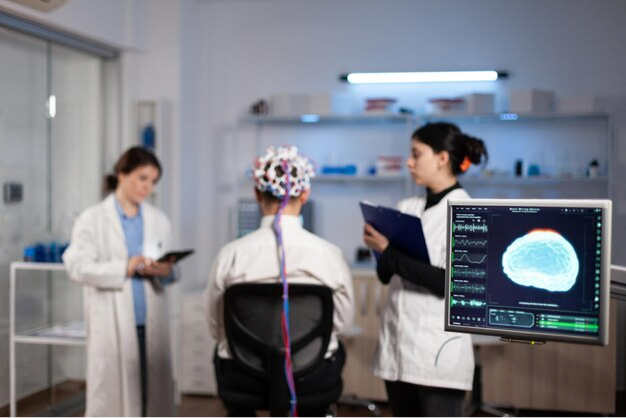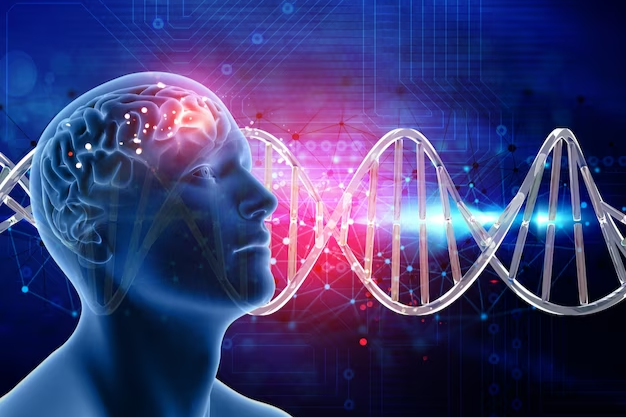Introduction
The human nervous system is a marvel of complexity and coordination, responsible for regulating every aspect of our bodies and minds. However, when this intricate system malfunctions, it can give rise to various neurological disorders. In this article, we will explore the causes, symptoms, and treatment options for neurological disorders, shedding light on the challenges and advancements in the field of neurology.
Understanding Neurological Disorders
Neurological disorders are a broad category of medical conditions that affect the nervous system, encompassing the brain, spinal cord, and peripheral nerves. These disorders can be caused by a multitude of factors, including genetics, environmental influences, infections, and injuries.
Common Causes of Neurological Disorders
- Genetics: Some neurological disorders, such as Huntington's disease and certain forms of epilepsy, are rooted in genetic mutations that can be inherited.
- Infections: Infections like encephalitis and meningitis can lead to inflammation of the brain or spinal cord, causing neurological symptoms.
- Trauma: Head injuries, such as concussions or traumatic brain injuries (TBIs), can result in neurological complications.
- Degeneration: Many neurological disorders, like Alzheimer's and Parkinson's, are associated with the degeneration of specific brain regions.
- Autoimmune Reactions: Conditions like multiple sclerosis (MS) occur when the immune system mistakenly attacks the nervous system.
Common Neurological Disorders and Their Symptoms
- Migraines: Intense, recurring headaches often accompanied by nausea, vomiting, and sensitivity to light and sound.
- Epilepsy: Characterized by seizures, which can manifest as convulsions, altered consciousness, or unusual sensations.
- Stroke: Sudden loss of brain function due to disrupted blood supply, leading to symptoms like paralysis, speech difficulties, and vision problems.
- Multiple Sclerosis (MS): Autoimmune disease that causes fatigue, muscle weakness, numbness, and coordination problems.
- Parkinson's Disease: Characterized by tremors, muscle rigidity, and bradykinesia (slowness of movement).
- Alzheimer's Disease: Progressive cognitive decline, memory loss, and personality changes.
- Amyotrophic Lateral Sclerosis (ALS): Affects motor neurons, leading to muscle weakness, difficulty swallowing, and breathing problems.
Treatment Options
The treatment of neurological disorders can be complex and varies based on the specific condition and its severity. However, here are some common treatment options:
- Medication: Many neurological disorders can be managed with medication to control symptoms or slow disease progression. For example, antiepileptic drugs for epilepsy or dopamine replacement therapy for Parkinson's.
- Physical and Occupational Therapy: These therapies can help patients regain or improve their physical and cognitive abilities, enhancing their quality of life.
- Surgery: In some cases, surgical procedures can alleviate symptoms or treat the underlying cause of a neurological disorder. For instance, epilepsy surgery to remove the seizure focus.
- Lifestyle Modifications: Lifestyle changes, such as a healthy diet, regular exercise, and stress management, can help manage symptoms and improve overall well-being.
- Supportive Care: Providing support and care to patients with progressive neurological disorders like ALS and Alzheimer's is essential for maintaining their comfort and dignity.
Conclusion
Neurological disorders can be challenging, both for individuals affected and their loved ones. Understanding the causes, symptoms, and treatment options is crucial in managing these conditions. Advances in neurology and ongoing research offer hope for better treatments and potential cures in the future. If you or someone you know is dealing with a neurological disorder, it's important to seek professional medical advice and support to enhance the quality of life and well-being.
.pdf%20300X60%20PX-02-02.svg)



